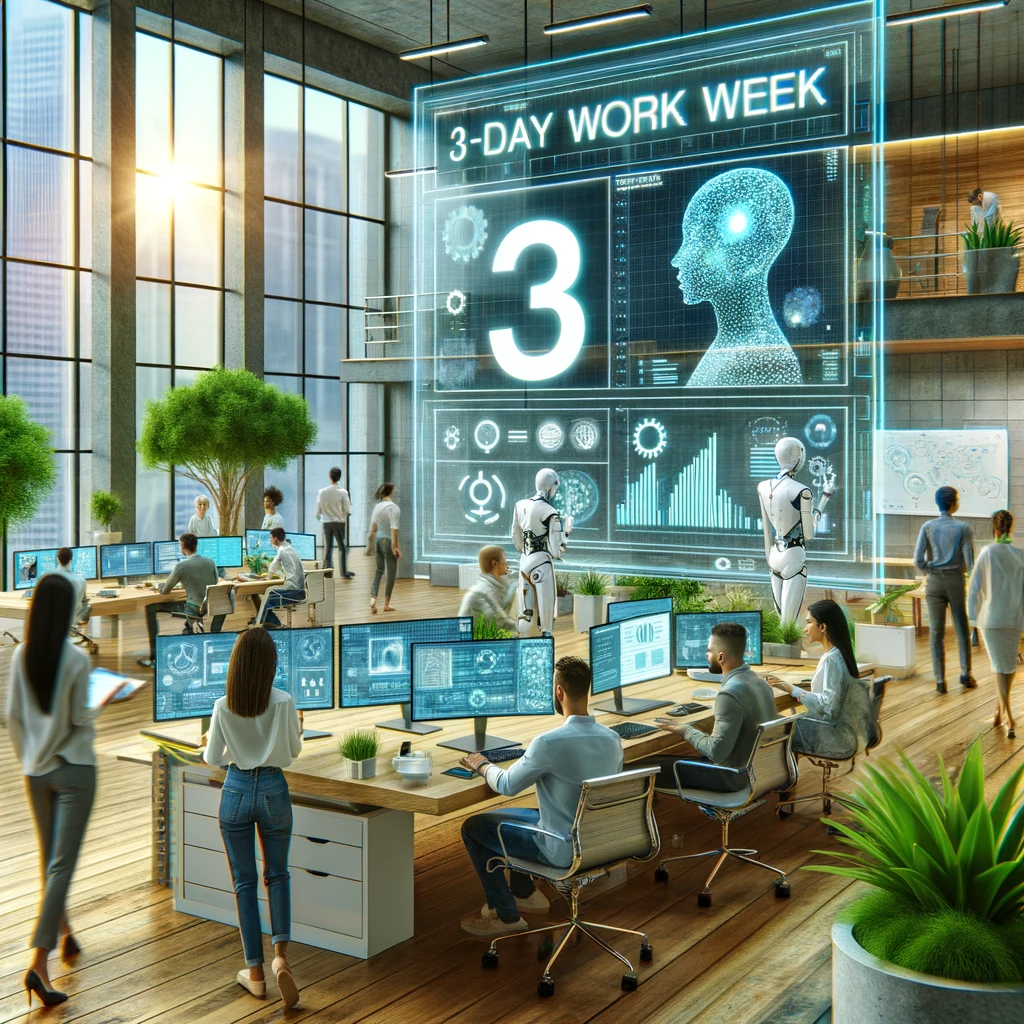Introduction
In a world where the boundaries of work and technology continually blur, a new visionary idea has emerged from none other than tech magnate Bill Gates. In a recent podcast with comedian Trevor Noah, Gates delved into how artificial intelligence (AI) could revolutionize our work lives, potentially trimming the traditional work week down to just three days. This groundbreaking concept not only challenges our current work paradigms but also opens up a plethora of possibilities and questions about the future role of AI in reshaping our professional and personal lives.
The Gates Perspective
Bill Gates, a name synonymous with technological innovation and foresight, suggests that AI’s advanced capabilities could significantly enhance productivity and efficiency. The implication is clear: if AI can handle a substantial portion of our workload, humans could enjoy more leisure time, leading to a better work-life balance. Gates’ perspective is not just about reducing hours; it’s a radical rethinking of how we define work and the role of humans in an AI-driven future.
The AI Influence on Work
The integration of AI into the workforce isn’t a new concept. From automation in manufacturing to algorithms in data analysis, AI has already made significant inroads. However, Gates’ vision takes this a step further, suggesting a future where AI’s role isn’t just about assistance or efficiency but fundamentally transforming the work structure. The idea posits that with AI handling more complex tasks, human workers could focus on creative, strategic, or interpersonal aspects that machines cannot replicate.
Potential Benefits and Challenges
A three-day work week underpinned by AI could offer numerous benefits. It could lead to improved mental health, more time for personal development, and strengthened family and community ties. However, this utopian vision comes with its set of challenges. The most pressing concern is the threat to job security – as AI becomes more capable, the fear of job displacement looms large. Additionally, there are questions about the digital divide and ensuring equitable access to these AI-driven benefits.
Preparing for an AI-Enhanced Future
To navigate this future, proactive measures are essential. This includes rethinking education and training programs to prepare the workforce for an AI-augmented environment. Governments and organizations need to develop policies and frameworks that support workers through this transition while ensuring that AI’s benefits are equitably distributed.
Conclusion
Bill Gates’ envisioning of a three-day work week facilitated by AI is more than a futuristic dream; it’s a prompt to reassess our relationship with work, technology, and life. As AI continues to evolve, it presents an opportunity to redefine work in ways that align more closely with human well-being and satisfaction. While challenges exist, the potential for a more balanced, productive, and fulfilling life is an enticing prospect that merits serious consideration and action.
